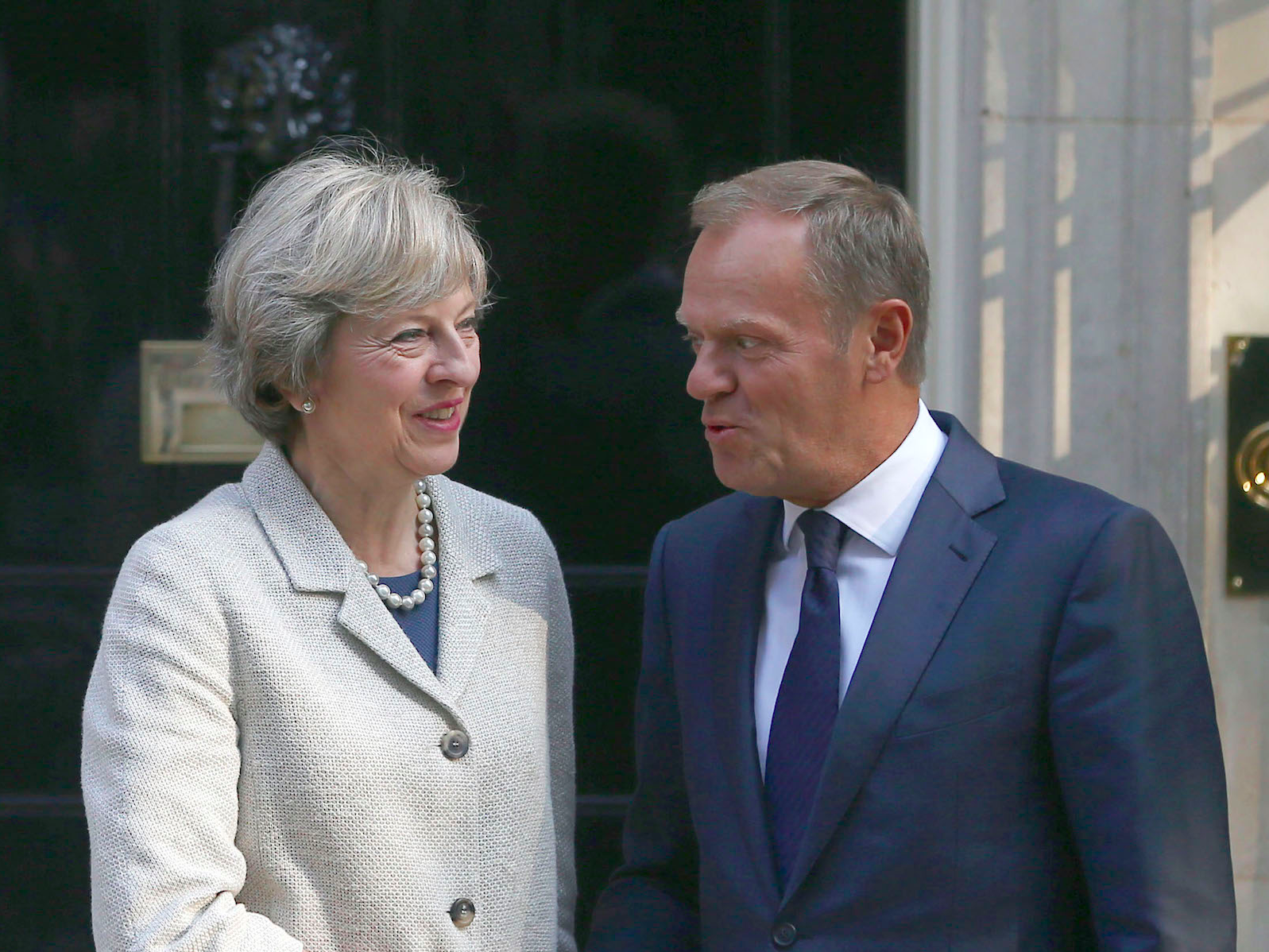Donald Tusk, the President of the European Council said that talk of so-called “hard” or “soft” Brexit is pointless.
By leaving the European Union, Britain will by definition be choosing “hard Brexit,” Tusk said.
Speaking at a conference to celebrate the 20th anniversary of the European Policy Centre on Thursday, Tusk argued that any talk of a “soft Brexit” – where the UK foregoes its EU membership but retains its access to the single market either through membership of the EEA or a Swiss-style deal – is simply not realistic.
Instead, Brexit means “hard Brexit” Tusk told an audience in Brussels, saying that if the UK wants anything else, it must stay in the European Union.
“If you ask if there is any alternative for this bad scenario, I would like to tell you that, yes, there is, and I think it is useless to speculate about “soft Brexit” because of all the reasons I have mentioned. This would be purely theoretical speculations. In my opinion, the only real alternative to a “hard Brexit” is no Brexit. Even if today hardly anyone believes in such a possibility,” Tusk said. Morgan Stanley recently assigned a possibility of around 10% to Britain remaining in the EU.
During the speech, Tusk's official Twitter account tweeted, saying:
The essence of Brexit as defined in the UK referendum campaign means radically loosening relations with the EU, a de facto "hard Brexit"
— Charles Michel (@eucopresident) October 13, 2016
Tusk said: "The brutal truth is that Brexit will be a loss for all of us. There will be no cakes on the table for anyone. There will be only salt and vinegar."
"We will conduct negotiations in good faith, defend the interests of the EU 27, minimise the costs and seek the best possible deal for all, but as I have said before, no such outcome that will benefit either side. Of course, it is, and can only be for the UK to assess the outcome of the negotiations, and determine if Brexit is really in their interests," Tusk added.
Senior EU politicians have constantly maintained since the vote that Britain will not be able to remain a member of the single market while also placing restrictions on the free movement. This is the type of Brexit deal both Theresa May and foreign secretary Boris Johnson had reportedly been eyeing up until recently.
In September, for example, former Belgian Prime Minister Guy Verhofstadt, the man appointed by the European Parliament to negotiate Brexit talks spoke frankly about how difficult he plans to make Britain's withdrawal from the European Union. Verhofstadt noted that he will not allow Britain to pick and choose which of the EU's "inseparable" four freedoms it wants to enjoy once Brexit is delivered - the free movement of goods, services, capital, and people.
Tusk also added during his speech that he thinks it is highly unlikely that the UK will manage to conclude its negotiations in the two year period between the triggering of Article 50 and officially leaving the bloc. "I think the process will be much longer than two years," he said.
Many commentators have pointed out, it took Canada seven years to finalise its trade agreement with the EU, and in a recent interview with Business Insider, Labour MP Stephen Kinnock said that he "genuinely thinks that's possible" that Brexit negotiations could take 10 years.

